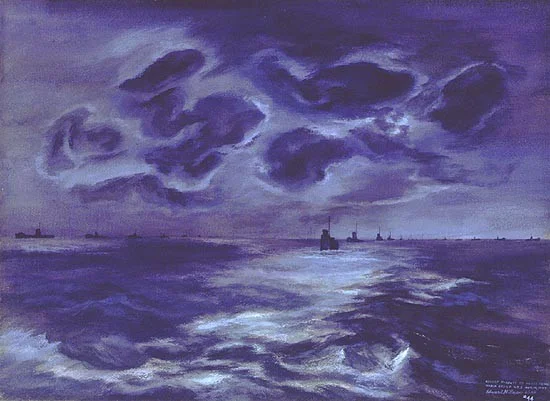Beyond strategy, domestic factors in Imperial Germany impacted naval shipbuilding. Domestic factors could strengthen naval expansion or constrain it…It may be inferred, therefore, that the conventional wisdom of the primacy of maritime strategy in naval shipbuilding may also hold true for mature navies. At all times, but especially for rising navies, non-strategic factors such as economic subsidies and technological innovation may exhibit influences that precede or override maritime strategy in naval shipbuilding. Put another way, leaders often exhibit composite thinking in naval shipbuilding decisions, but maritime strategy’s primacy does not always hold.
#Reviewing Small Boats and Daring Men
Armstrong’s greatest contribution is including irregular warfare, or guerre de razzia, as a legitimate strategy alongside guerre de course commerce destruction and guerre d’escadre fleet action. Irregular warfare is not portrayed only as an incidental strategy that came about as a last resort, but as an accepted form of naval strategy that is part of the more general concept of naval operations and establishes precedent for practicing that strategy in today’s conflicts.
Death from Below, Salvation from Above: The Effect of Civil-Military Relations on British and Japanese Anti-Submarine Warfare Strategies in the World Wars
In the two largest wars this planet has ever experienced, the authority and influence of civilians over military affairs assured victory in one and the lack of such brought total and utter defeat in another. Therefore, in the grand scheme of things, civil control of the military has proven its value not only as an avenue for better governance, but as a strategic asset capable of providing the necessary leverage to achieve victory in wartime.
#Reviewing Red Star Over the Pacific
China seeks nothing less than to displace the United States as the preeminent power in the Pacific, if not the world. It intends to make a new order that expands the reach of its state-driven economic model. To achieve this vision, China's leaders have characterized the first two decades of the 21st century as a "period of strategic opportunity," during which Xi Jinping's “Chinese Dream” of national rejuvenation can be realized.
Command of the Littorals—Insights from Mahan
For all the changes in naval warfare—from non-state actors to precision-guided missiles to the inevitable small, autonomous, unmanned craft tactics—the maritime world is exactly how Alfred Thayer Mahan described it a century ago. This doesn’t mean naval tactics, and therefore naval warfare, will be the same as described in his works. That won’t be the case. Whatever character littoral naval warfare takes on in the future, its north star will always be sea control.
#Reviewing A History of Strategy
Strategists are a critical bunch. After all, critical analysis is an important skill for those involved in scrutinizing international relations, history, and policy to generate insights. It is therefore curious that Martin Van Creveld’s book A History of Strategy: From Sun Tzu to William S. Lind immediately opens itself to the nitpicking of strategists in two related regards. First, the treatment of such a vast topic is too brief, running just 124 pages. Second, as a natural extension of its brevity, the details about the strategists it addresses are rather sparse. If the reader is able to overlook these limitations, however, A History of Strategy is a useful overview of the figures and ideas that form the canon of strategic thought.
#Reviewing God and Sea Power
Few, if any students or practitioners of strategy can argue the importance of Admiral Alfred Thayer Mahan’s influence on sea power theory, as well as his impact on the American military institution as a whole. As with any theorist, however, we tend to examine his body of work, and to look at the factors that shaped who he was as a strategist and a mariner. Most works only give a cursory glance at the things that influenced Mahan’s character across all facets of his life. In God and Sea Power, author Suzanne Geissler goes beyond that, following the closely-interwoven relationship between Mahan’s faith and his work as a sailor, leader, and strategist.
A New Sea Power Strategy: What Would Alfred Thayer Mahan Do?
In 1901, Mahan wrote an essay for the British journal National Review entitled “Considerations Governing the Dispositions of Navies.” It was a study of why, where and how a nation should exercise their naval forces in times of relative peace, “for the dispositions of peace should bear a close relation to the contingency of war.” While the essay is little known compared to his seminal book, the noted strategist of the 1930s and 1940s Herbert Rosinski wrote that it was probably some of Mahan’s best work.









